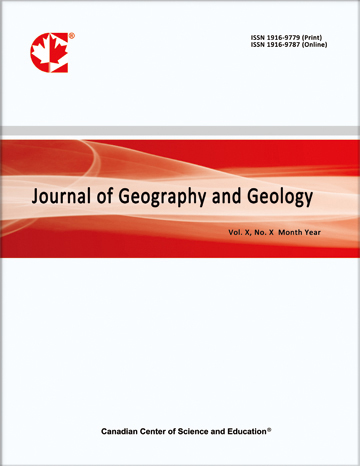Impacts of Anthropogenic Factors on Urban Air Quality in Lagos Metropolis
- Peter Nkashi AGAN
Abstract
Land use is the utilization and reordering of land cover for human comfort. This process disrupts the pristine state of the environment reducing the quality of environmental receptors like water, air, vegetation etc. Air pollution is introduced into the environment as a result of anthropogenic activities from commercial, industrial and residential areas. These activities are burning of fossil fuels for power generation, transport of goods and services, valorization of raw materials into finished products, bush burning, use of gas cookers, generators and electric stove etc. The introduction of pollutants into the planetary layer of the atmosphere has impacted negatively on the quality of the environment posing threat to humans and the survival of the ecosystem.
In Lagos metropolis, commercial activities and high population densities have caused elevated levels of pollution in the city. This study aimed to investigate the spatial distribution of pollutant in Lagos metropolis with a view to revealing the marked spatial/temporal difference in pollutants levels over residential, commercial and industrial land uses. Commercial and industrial land uses revealed higher levels of pollutants than the residential areas. Pearson product moment correlation coefficients revealed strong positive relationship between land use and air quality in the city.
- Full Text:
 PDF
PDF
- DOI:10.5539/jgg.v11n2p35
Journal Metrics
(The data was calculated based on Google Scholar Citations)
Google-based Impact Factor (2018): 11.90
h-index (January 2018): 17
i10-index (January 2018): 36
h5-index (January 2018): 13
h5-median(January 2018): 15
Index
- BASE (Bielefeld Academic Search Engine)
- Bibliography and Index of Geology
- CiteFactor
- CNKI Scholar
- Educational Research Abstracts
- Excellence in Research for Australia (ERA)
- GeoRef
- Google Scholar
- LOCKSS
- NewJour
- Norwegian Centre for Research Data (NSD)
- Open J-Gate
- PKP Open Archives Harvester
- SHERPA/RoMEO
- Standard Periodical Directory
- Ulrich's
- Universe Digital Library
- WorldCat
Contact
- Lesley LuoEditorial Assistant
- jgg@ccsenet.org
